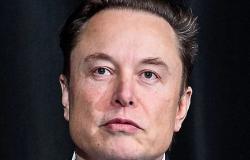Musk’s support for the extreme right points to the necessity of democratic transformation – in Germany and beyond

Looking at the case of Germany, Cornelius Adebahr argues that far-right parties' recent successes with voters is often based on real deficiencies in democratic systems and a lack of clear positive visions for the future.
Elon Musk is on a roll. Not only is he about to be given the key to implement his version of “government efficiency” in the United States, but he’s also throwing his weight behind right-wing extremists across Europe.
Late last year, on his own X platform and in an op-ed in the German daily Die Welt, he explained why the Alternative für Deutschland (AfD) is, in his view, the only party that could save the federal republic. In fact, the “chief amplifier of global authoritarianism”, as the Frankfurter Allgemeine Zeitung labelled him, couldn’t be more wrong on substance, as the AfD’s program aims to dismantle the liberal democratic Germany founded out of the ashes of World War II.
That said, and as difficult as it is to admit, the AfD is right in one thing: it points out real grievances within today’s democracies. Yet, it does so in a purely populist manner, without providing viable answers to the pressing questions about a fair economy, a viable social model or even a functioning administration. Given that also the other parties currently represented in the Bundestag fail to do so, a space for a real – democratic – alternative is emerging in the German party landscape.
A brief look back at twelve years of the AfD shows the extent to which its success with voters is based on real deficiencies in the democratic system. Founded in early 2013 during the sovereign debt crisis, the party put its finger where it hurts, i.e. on Europe’s financial policy. Even then, its policy proposals were crude and harmful: throwing Greece out of the euro and, in the medium term, leading Germany out of the monetary union would have resulted in serious economic disruption.
Nonetheless, at least the AfD identified a problem to which the other parties – above all the conservatives under Chancellor Angela Merkel, governing first with the liberals and then with the social-democrats – had no answer or did not want to address. They did merely what was strictly necessary to keep Europe together, but not enough to put the monetary union on a firm footing. To this day, there is no banking union to protect the EU from the next crash, and no financial market union to provide capital for a flourishing economy.
With the onset of the refugee crisis in 2015/16, the party of economics professors critical of the common currency switched to the issue of migration. Here, too, it cannot offer real solutions: closing the borders to its European neighbors would harm the German economy more than it supposedly benefits society. The current debate about possible returns to Syria shows what practical problems ‘remigration’ would bring, even before getting into the fundamental rights issues of ‘mass deportations’: while some conservative politicians, in their eagerness to outbid the AfD, cannot send them ‘home’ quickly enough, German companies fear the exodus of well-integrated skilled workers.
What remains unresolved, however, is the question of an active immigration policy for the domestic labor market in conjunction with humane asylum law. This is the only way to meet the long-term challenges posed by demographic change in Germany and global migration driven by conflict and climate change. What is needed, and what populists cannot provide on principle, is a forward-looking social model.
Finally, during the Covid crisis, it was easy for the AfD to join forces with the pandemic deniers and vaccine refusers. Instead of a national solidarity in the face of the threat, the party was only concerned with stirring up sentiment against the federal government. Without irony, the AfD, which otherwise stands for a strong state, criticized the protective measures as excessive interference in civil liberties.
Here, too, there is an important democratic function in questioning the necessity of state measures and criticizing the lack of efficiency of administration (like fax machines in public health offices) and education (like the neglected effects of long school closures). The problem of the other parties is not that they did not listen to the opportunistic AfD at the height of the pandemic. It is that they did not undertake any serious reappraisal after the latter had ended, including admission of where they may have erred in the heat of the crisis.
The dilemma that has run through the last decade or so of German politics is that the democratic parties cannot find answers to fundamental challenges. Accordingly, there is room and need for a new foundation, as has been the case at regular intervals in Germany’s history: the founding of the social democrat party well over 130 years ago was a response to the conservatism of the German Empire. The liberal predecessor of today's FDP emerged in 1918 with the Weimar Republic, Germany’s first democracy. After 1945, the Christian centrist movement assembled in the Christian Democratic Union, while in the 1980s a new environmental awareness gave rise to the Greens.
Looking back, the time was ripe for a new party in the 2010s. Merkel’s chancellorship benefited from earlier or outside factors, such as the previous government’s labour market reforms providing domestic dynamics and China’s rise boosting German exports. The chancellor herself mostly administered the status quo, she hardly pushed forward any initiatives of her own.
At this point, the AfD emerged on the scene as a new and, ultimately, transformative party. While labelling itself as conservative, it decidedly opposes the European progress of the last decades. After just a few Eurosceptic years, it took a turn towards nationalism and racism, entered the Bundestag in 2017 and has been the second strongest force in nationwide polls since summer 2023 with around 20 percent.
What is missing in Germany, however, is a transformative party that looks to the future. One that tells people where the journey should go if not back to the past. With the federal election coming up on 23 February, voters do not have much time left to make their choice. Only one thing is clear: They must not listen to Musk to find out which party has a coherent, actionable, and positive vision for the future – of Germany and Europe.
Image: U.S. Air Force / Trevor Cokley Elon Musk Colorado 2022 (cropped2).jpg Public domain


